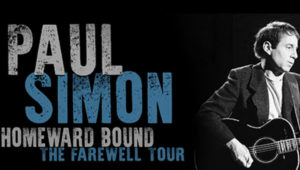
Vision and culture move the needle…
If you boil it down, Mayors and City Commissioners are responsible for two big things and a lot of little things.
This blog will focus on the two big things.
They are:
Vision and culture.
Those words deserve to be bold because it all flows from those two words.
Everything else—budgets, development, bidding, contracts— suffers if you don’t have a vision and you don’t have a positive culture.
A community’s vision should drive its budget. After all, how do you know where to make investments if you don’t have a vision for your city?
How do you shape development if you don’t know where you want to take your city?
I happen to believe that the best visions are citizen driven, created by a large cross section of stakeholders and implemented by elected officials and city staff.
But it’s the elected officials responsibility to see to it that there is a vision and that the vision is being followed. In other words, elected officials are stewards of their community’s dreams and aspirations.
Frankly, I don’t know how you lead without a vision.
Goals and visions drive everything—where you spend money, what projects you approve, where you allocate time and resources. Having a compelling vision is the best economic development tool imaginable. If you’re serious about making it happen the private investment you need to transform your community will come. Yes it will. You just have to believe and relentlessly focus and implement a compelling vision. (Execution is a key; visions left to gather dust on a shelf are to be avoided at all costs).
As for culture, in this case I don’t mean arts and music (which are also important) I’m referring to the atmosphere in your city.
Culture is the air that we breathe—is it positive, enthusiastic, hopeful, crackling with energy and enthusiasm? Or is it negative, nasty, toxic, untrusting and treacherous?
Is the mood in your city exciting or is it negative or milquetoast? Because while milquetoast may be better than nasty it’s still not good and it’s not going to move the needle in your community.
So when we look at our local leaders, or our state and national leaders for that matter, we ought not settle. We should not compromise. It’s too damn important.
Enlightened leaders change places.
They create opportunities, they change neighborhoods for the better, fix problems, heal rifts, seize the day and meet challenges. We need them.
But we play a role too.
We need to set a high bar.
We need to participate.
We need to vote, state our opinions, talk to our neighbors and help to shape the vision. We also need to hold elected leaders accountable.
We need to insist that they work toward creating and standing for a good culture and a kind community. Nothing else works.








